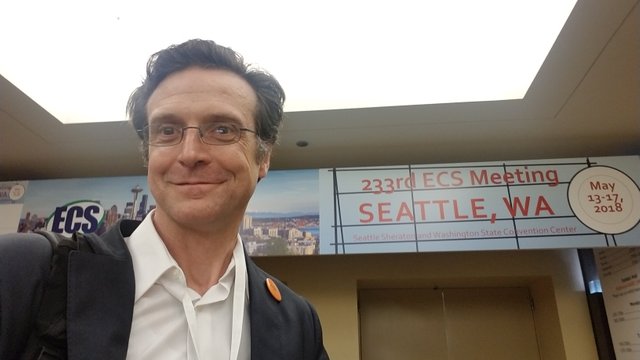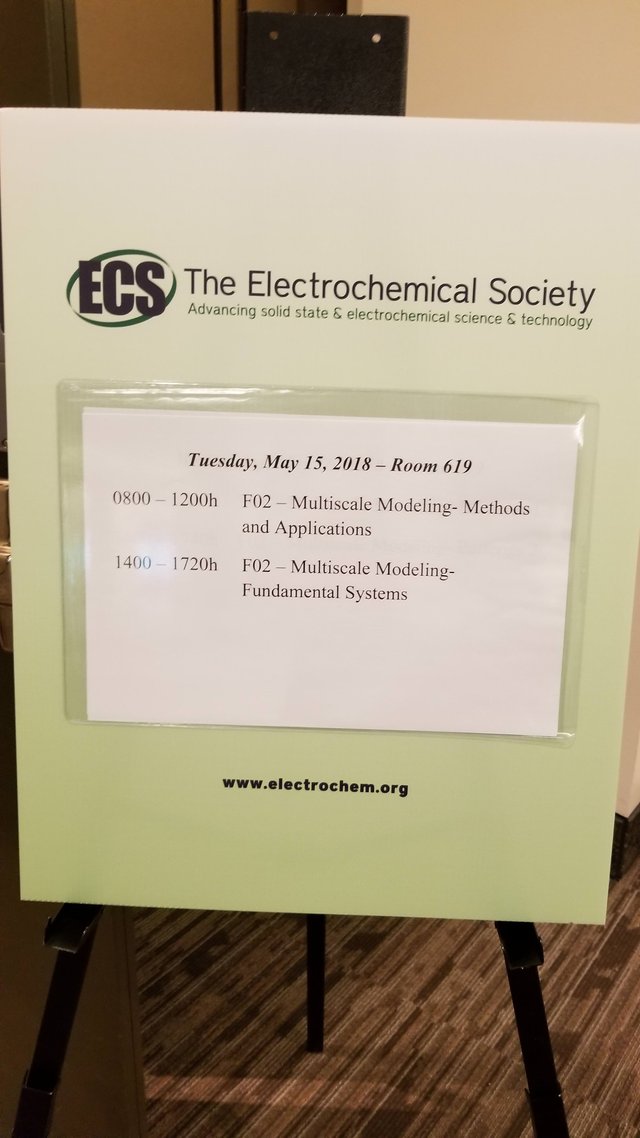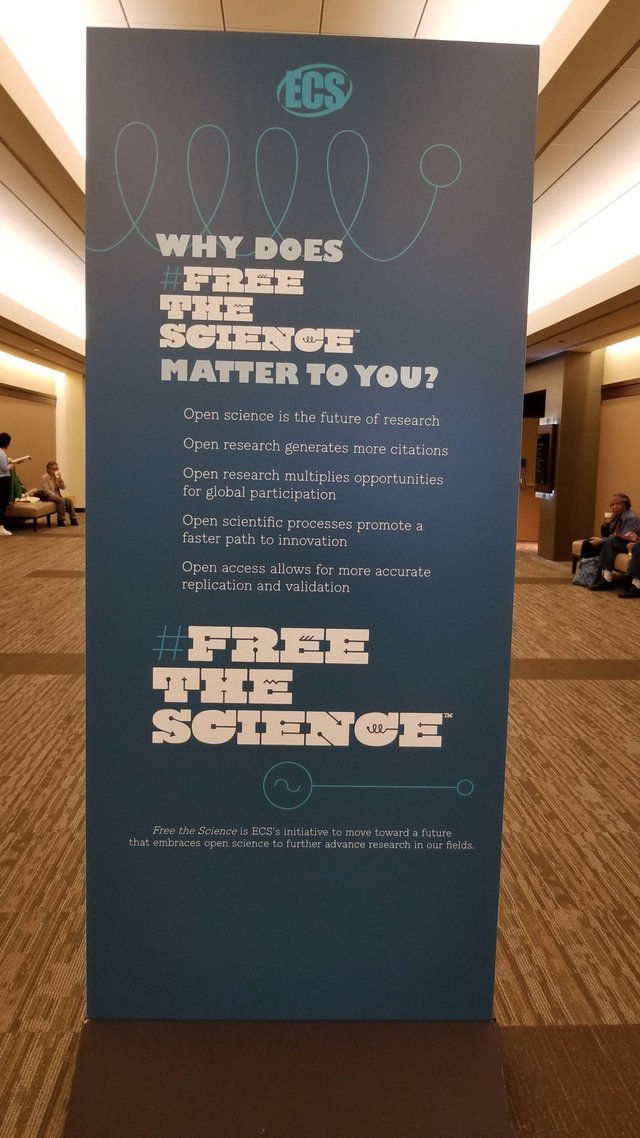I just wanted to give you a brief update. Today I'm attending the 233rd. meeting of the Electrochemical Society in Seattle, WA.

I'm giving a talk titled “Modeling Glassy Electrolytes for All-Solid-State Sodium Ion Batteries” at 2:00 in the "Multiscale Modeling - Fundamental Systems." in room 619 of the Washington State Convention Center.

I'd love to meet any Steemians that are in attendance. Please come by.
By the way, there is an initiative at the ECS to encourage open access science, “Free The Science.” It seems like a worthwhile endeavor.

Are you familiar with the work of Paul Feyerabend? His ideas about epistemology and philosophy of science may be germane to this concept of freeing the science. Bless.
Downvoting a post can decrease pending rewards and make it less visible. Common reasons:
Submit
Yes, I know Feyerabend. In a more global context I would agree that science has become increasingly aristocratic in recent years. It was much more open in the past before it became such a big enterprise driven by big payouts.
For example, the start up package for new STEM faculty at state schools is upwards of $500k-$1M and tenure requires bringing over $1M in federal grant money. It should be noted that paying 1 PhD student for 1 year costs upwards of $75k per year although the student only receives $25k per year in salary, the rest of the money goes to tuition, benefits, and overhead costs. Overhead costs are typically around 50% so for every $1 you spend the university takes %0.50. Salaries have followed suit -- although administrative salaries are significantly higher. Whereas a full professor will typically earn around $150k per 12 month period, but department chairs and deans can early $200k+.
Having said this, in the context of the ECS, we're talking about open access publishing -- making the scientific content free for everyone to read. Its hard to believe (sarcasm), but scientific publishing is big money. Authors are supposed to pay per page and pay for color figures, the journals then collect advertising money, and lastly they sell their journals to universities for $1000 per year, which the schools pay because without access it becomes difficult for the faculty to write competitive grants to raise the money needed to pay students (and overhead).
The idea behind open publishing is that since most of the science is paid for by tax money, the content should be made free to everyone. This also will help level the playing field between the schools.
Downvoting a post can decrease pending rewards and make it less visible. Common reasons:
Submit
How I wish I was close , I would love to come .
Downvoting a post can decrease pending rewards and make it less visible. Common reasons:
Submit
I resteemed your post@spbeckman
Downvoting a post can decrease pending rewards and make it less visible. Common reasons:
Submit
Thanks, like your blog. I'm following you.
Downvoting a post can decrease pending rewards and make it less visible. Common reasons:
Submit
Thanks, are you on discord? ?
Downvoting a post can decrease pending rewards and make it less visible. Common reasons:
Submit
Yes, sort of... I'm new to Steemit and much of the social media - I quit facebook in 2013 and that was about the limit to my participation. Steemit is something entirely different for me. I have an account on Discord, but I've not figure out how it works yet.
Downvoting a post can decrease pending rewards and make it less visible. Common reasons:
Submit
Okay, are you on telegram!
Downvoting a post can decrease pending rewards and make it less visible. Common reasons:
Submit